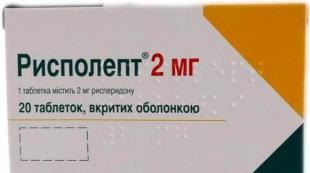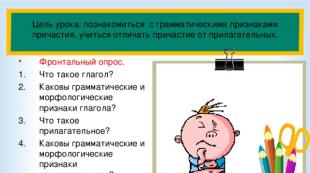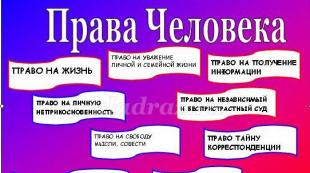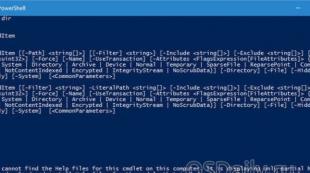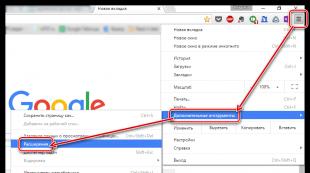Word index for the “Spelling” section. As it is written “no matter how you look at it.” Word index for the “Spelling” section See what “Whatever one may say” is in other dictionaries
We found out from a professional what curls will be in fashion this summer, and received step-by-step instructions for “preparing” them.
Technologist Lisap Milano
1. Do you like the bold and romantic look in the “rodeo queen” style, like Nina Richie’s show? Then feel free to repeat: take the iron and twist the strands in different directions. It is important to hold the iron vertically, pointing downwards. Once all the strands are curled, apply a little volumizing product to the top of your head.

2. Do you love curls, but at the thought of straightening your hands give up? Not a problem either. Divide your hair into sections (keep in mind, the thinner the strand, the steeper the curl, so 5-6 sections are optimal), twist slightly damp hair into buns, secure with an elastic band, and in just a few hours you will get cool curls! The only thing is that this option is not suitable for owners of long and thick hair - the curl simply will not hold.
3. Hollywood trick for those who need everything at once and “faster, please.” Make a high ponytail, divide it into two or three sections (depending on the thickness of your hair), and then curl each of them separately. Unravel your ponytail, lightly “beat” your hair with your hands, and voila, the styling is ready!




4. Of course, you can’t help but pass by the Victoria’s Secret angels, whose curls have long become iconic. Repeating this style is quite simple: curl your hair in a chaotic manner on a curling iron, but keep in mind that the larger it is in diameter, the more elegant and relaxed the curls will look.

5. And finally, a method for those who live under chronic time pressure! No irons or tongs, instead... a regular headband. The steps are as follows: put a headband on your head, divide your hair into two sections, twist it into bundles, carefully thread the hair through the headband (the movement will have to be repeated two or three times, depending on the length of the hair) and go to bed. In the morning, carefully take out your hair and enjoy beautiful curls a la naturel.
There are special designs with not and no particles.
1. The construction with the verb can and a double negative should be distinguished from the construction with the verb can with the preceding not and the repeating intensifying nor. Wed. examples in pairs: 1) He can't help but work. - He can neither work nor rest. 2) He can’t help but read, he can’t help but write, he can’t help but listen to music. - He can neither read, nor write, nor listen to music. The first clause of each pair states that the corresponding action is performed; in every second it is stated that it is impossible to carry out these actions.
2. Both the particle not and the particle neither can be included in constructions with pronominal words who, what (in different cases), how, where, where, from and so on.
a) Constructions with a particle are not included in exclamatory or interrogative-exclamation sentences, in which the particle is often present only, for example: Who didn't know this man! What didn’t delight him at this unusual exhibition! Who doesn't know this house? Why doesn’t my mind then enter into my slumber?(Hold). How can you not love your native Moscow!(Bar.). Wherever he has never been! Where did he turn!
Such sentences - negative in form - always contain an affirmation in content. ( Who didn't know this man! means "everyone knew this person"; Wherever he has never been! means “he had to go everywhere”).
b) Constructions with pronominal words and the particle neither (often with the preceding particle would) are always part of concessive subordinate clauses, for example: Whoever dies, I am the secret killer of everyone(P.). It's a pity, but we'll have to give it up. No matter what happens, you must remain calm. No matter who was asked, no one knows. Whatever the child enjoys, as long as he doesn’t cry(last). Whatever the answer, it is better than complete uncertainty. No matter how hard we tried, he could not distinguish iambic from trochee.(P.). Wherever he worked, he was appreciated everywhere. Everywhere I look, thick rye is everywhere!(Mike.). Whenever people come to him, he is always busy. No matter how much you look for the culprit in this case, you still won’t find it.
3. Constructions are none other than and nothing more than, in which who and what can stand in oblique cases without prepositions and with prepositions ( none other than; nothing else but; none other than; with nothing more than etc.), should be distinguished from constructions that include the pronouns nobody and nothing (also in different cases without prepositions and with prepositions). Wed. the following examples in pairs: 1) This is none other than his brother. - No one else but his own brother can know this. 2) This is nothing more than the most blatant deception. - Nothing else interests him. 3) He met with none other than the president of the country. - He does not agree to meet with anyone other than the president. 4) He agreed to nothing less than to direct the entire work. - He will not agree to anything other than a leadership position. In each pair, the first sentence is affirmative, the second is negative.
4. Both the particle not and the particle neither are part of a number of stable combinations.
a) The particle cannot be part of complex unions: not yet; not that; not that... not that; not only but; not that (not)... but; not that (not so) to... ah. Examples: Wait until the transmission ends. Stop it or I'll scream! The weather is unpleasant: it is either raining or snowing. He is not only a poet, but also a composer. The relationship between them is not only friendly, but hostile. He will be not only ten minutes, but even an hour late. He is not that rude, but somewhat hot-tempered. She is not so angry, but indifferent.
The particle is not included in combinations close in meaning to particles: not at all, hardly not, far from, almost, almost, not at all, not at all, not at all, isn’t it, almost, almost; no more than, no more than, no more and no less than.
Many stable combinations, including those involving prepositional constructions of nouns, do not begin with a particle: not so hot (how, which one), not God knows (who, what, what, etc.), not in the arc, not in the spirit, not in the test, not in harmony, not in harmony, not in moderation, not in the rise , not an example, not a joy, not in oneself, not able to, not counting, not a sin, God forbid, not to fat, not to laugh, not to that, not to good, not to liu, not to the place, not the place, not in a hurry, not for a joke, not at the address; not by days, but by hours; beyond my strength, beyond my capabilities, beyond my gut, not at my ease, at the wrong time, out of hand, out of the question, out of work, out of luck and etc.
b) The particle is not a component of many stable combinations.
Combinations that are subordinate clauses in form: at all costs, no matter how you turn it, no matter how you throw it, no matter how you twist it, no matter where you throw it, no matter where it goes, no matter where it comes from, no matter what you say.
Combinations with initial single neither: nor aza, nor belmes, nor my God, nor boom-boom, nor in life, nor in life, nor in the tooth (foot), not in any way, in no way, in no case, not in one eye , not that much, not at all (to bet), not a penny, not a gugu, not for a penny (perish, abyss), not for a sniff of snuff (perish, abyss), not for anything, not a zgi, not a drop, not a penny, not a spear, not a crumb, not for anything, not to hell (not good), not for a hair, not for a penny, (who, what, which) not for a meal, not for an iota, not for a minute, not for a step, not foot, under no circumstances, not to do with anything, not a word, not an inch, not a move, not with anything (to be left), not a damn thing, not a damn thing, not a step(exclamation), not a big deal.
Combinations with repeating neither: neither be nor me, nor more nor less, neither back nor forward, neither think nor guess, neither mother nor father, nor warehouse nor in harmony, neither yes nor no, neither give nor take, neither two nor one and a half , neither bottom nor tire, neither day nor night, neither soul nor body, neither hot nor cold, neither alive nor dead, neither for anything nor for anything, neither skin nor face, nor stake nor yard, nor end nor edge, nor to village neither to the city, nor spoon nor bowl, neither less nor more, nor more nor less, neither moo nor calf, neither ours nor yours, neither answer nor greeting, nor rest nor time, neither peahen nor crow, neither pass nor pass, neither fluff nor feather, neither fish nor meat, neither matchmaker nor brother, nor light nor dawn, neither oneself nor people, nor one’s mood nor one’s harmony, nor hearing nor spirit, nor sleep nor spirit, come nor sit down, neither for no reason nor for no reason. , no shame, no conscience, neither this way nor that, neither here nor there, neither this nor that, neither this nor that, neither this nor that, neither here nor there, neither subtract nor add, neither mind nor heart , neither ear nor snout, neither cold nor hot, neither shaky nor rolly; more detailed combinations of the same structure: not a candle for God, not a poker for the devil, not in the city of Bogdan, not in the village of Selifan, not in a fairy tale, not to describe with a pen.
Note. For writing such combinations without a comma, see “Punctuation”, § 26, note 1.
But we do not lose our vigilance, because the New Year, no matter how the weather turns on, no matter how confusing we are, comes at the same time. Good afternoon, please tell me, is it correct to use the particle “ni” with all three verbs? And why?
The particle was chosen correctly. Reinforcing particle neither written in subordinate concessive clauses.
| Question No. 280471 | ||
I already asked this question, but did not receive an answer.
How to correctly use “not” and “nor” in a construction:
"...No matter how hard you try, no matter how creative..."
I really hope for a quick response!
Russian help desk response
If it is part of a sentence (for example: No matter how hard you try, no matter how creative you are, no one will appreciate it), then you should write NI in both cases.
| Question No. 240649 | ||
Hello! Please tell me if a comma is needed: “After all (,) no matter how hard it is, he sold it...” Thank you, Irina.
Russian help desk response
No comma needed.
| Question No. 233962 | ||
No matter how you go about it, but what can’t you do? Please tell me how to explain this? How do you know when to use which particle?
Russian help desk response
That's right: _No matter how hard you try, you can't do anything_. Rules see http://spravka.gramota.ru/pravila.html?gl_13.htm [here].
| Question No. 223845 | ||
1. When implementing this project(,) no matter how hard(,) it is impossible to do without additional financial injections. (Please tell me, are commas necessary?!) 2. We can diversify the picture with additional elements without affecting the original image (or the original image??!) Thank you.
Russian help desk response
1. The specified commas are needed. 2. Both options are possible.
| Question No. 201014 | ||
Which is correct: “no matter how you turn it” or “no way you twist it”? Is it generally acceptable to use the particle NI before verbs? If possible, please also attach a link to the rule.
Russian help desk response
That's right: _whatever it is_. See section "Rules: old and new" - "Spelling of vowels" - "Unstruck particles _not_ and _neither_".
| Question No. 194738 | ||
Hello! Could you give an explanation as to why the verb has 3 persons, plural? “burn out” is written the ending -yat? After all, no matter how to ruti (burn out, burn out), this is a verb of the first conjugation. Why then don't they? How to justify this case? Thank you!
Russian help desk response
The rules for determining conjugation are as follows. Conjugation is determined by the indefinite form only for verbs with unstressed personal endings.
If the personal endings of the verb drums, then the conjugation is determined by the endings. All prefixed verbs with unstressed endings derived from such verbs also belong to the same conjugation.
At the verb burn personal endings percussion: mountains And m, mountains And shush, mountains I T. This is a second conjugation verb. Therefore, all derivatives of the verb also belong to the second conjugation burn prefixed verbs with unstressed endings, including the word burn out.
But we do not lose our vigilance, because the New Year, no matter how you turn it, no matter what the weather, no matter how confusing we are, comes at the same time. Good afternoon, please tell me, is it correct to use the particle “ni” with all three verbs? And why?
The particle was chosen correctly. Reinforcing particle neither written in subordinate concessive clauses.
| Question No. 240649 | ||
Hello! Please tell me if a comma is needed: “After all (,) whatever one may say, he sold it...” Thank you, Irina.
Russian help desk response
No comma needed.
| Question No. 233962 | ||
No matter how you look at it, what can’t you do? Please tell me how to explain this? How do you know when to use which particle?
Russian help desk response
That's right: _No matter how you look at it, you can't do anything_. Rules see http://spravka.gramota.ru/pravila.html?gl_13.htm [here].
| Question No. 223845 | ||
1. When implementing this project (,) no matter how you look at it (,), it is impossible to do without additional financial injections. (Please tell me, are commas necessary?!) 2. We can diversify the picture with additional elements without affecting the original image (or the original image??!) Thank you.
Russian help desk response
1. The specified commas are needed. 2. Both options are possible.
| Question No. 214264 | ||
It’s true, there are only a few of us left, We have preserved our honor for centuries, How we were twisted and broken, But we still exist in the world.
Russian help desk response
That's right: _neither twisted nor broken_. No additional punctuation is required.
| Question No. 201014 | ||
Which is correct: “no matter how you turn it” or “no matter how you turn it”? Is it generally acceptable to use the particle NI before verbs? If possible, please also attach a link to the rule.
Russian help desk response
Correct: _whatever you say_. See section "Rules: old and new" - "Spelling of vowels" - "Unstruck particles _not_ and _nor_".
| Question No. 194738 | ||
Hello! Could you give an explanation as to why the verb has 3 persons, plural? “burn out” is written the ending -yat? After all, no matter how you look at it (burn out, burn out), this is a verb of the first conjugation. Why then don't they? How to justify this case? Thank you!
Russian help desk response
The rules for determining conjugation are as follows. Conjugation is determined by the indefinite form only for verbs with unstressed personal endings.
If the personal endings of the verb drums, then the conjugation is determined by the endings. All prefixed verbs with unstressed endings derived from such verbs also belong to the same conjugation.
At the verb burn personal endings percussion: mountains And m, mountains And shush, mountains I T. This is a second conjugation verb. Therefore, all derivatives of the verb also belong to the second conjugation burn prefixed verbs with unstressed endings, including the word burn out.
Whatever one may say, Prost. Express Despite everything, all judgments; Despite everything. But still, he tried not to catch Trofim’s eye, because, whatever one may say, it was his fault that three more hungry mouths fell on the old man(F. Abramov. Two winters and three summers). The presence of a living creature nearby could not but be pleasant. After all, whatever one may say, she was (dog) a particle of the peace from which Yegorushka’s war took him(V. Nekhaev. Private Egorushkin and his dog). Lyokha has long tried to understand why his future father-in-law dislikes him so much. And he decided: he thinks he’s not a match for Lucy. Here, no matter how you look at it: she lives in a dorm, and is not the boss, she’s an ordinary driver... But she... She’s a different matter(V. Boltyshev. Life and work of Lyokha Chervonets).
Phraseological dictionary of the Russian literary language. - M.: Astrel, AST.
A. I. Fedorov.:2008.
Synonyms See what “Whatever one may say” is in other dictionaries: anyway
Synonyms- glad not happy, involuntarily, like it or not, no matter how you turn it, inevitable, glad or not happy, no matter how you turn it, you can’t get anywhere, no matter how you turn it, you can’t get away, you can’t get away, no matter how you turn it, you can’t get anywhere, no matter how you turn it , like it or not, no matter how you fight,... ... Synonym dictionary
whatever one may say- inevitable, no matter how you turn it, no matter how you turn it, involuntarily, no matter how you turn it, you can’t get away, no matter how you turn it, you can’t get away, no matter how you turn it, you can’t get anywhere, no matter how you turn it, you can’t get anywhere, gladly not glad, you want whether you want it or not... ... anyway
no matter how you look at it- adj., number of synonyms: 20 willy-nilly (19) volens nolens (12) no matter how you fight (... anyway
no matter how you turn it you won't get anywhere- adj., number of synonyms: 9 no matter how you turn it, you can’t get anywhere (9) no matter how you turn it, you can’t get anywhere (9) ... anyway
no matter how you turn it, there’s no escape- adj., number of synonyms: 9 no matter how you turn you can’t get anywhere (9) no matter how you turn you can’t get anywhere ... anyway
no matter how you turn you won't get anywhere anyway
No matter how you turn, there’s no escape- adj., number of synonyms: 9 no matter how you turn it, you can’t get anywhere (9) no matter how you turn it, you can’t get anywhere (9) ... anyway
no matter how you turn it- adj., number of synonyms: 17 willy-nilly (19) volens nolens (12) ... anyway
no matter how you fight- adverb, number of synonyms: 6 no matter how you turn (4) no matter how you twist (22) no matter how you twist (... anyway
Books
- How to move to another country. Turkish without a tutor. Let's go to the sea! (set of 3 books) (number of volumes: 3), Korzun Oksana. "How to move to another country and not die of homesickness." Hurray, it's done! Suitcases are packed, tickets are purchased, visas are issued, and you are ready to move. There is a new world ahead, unknown places,... Buy for 1251 RUR
- Spin, play, explore the world around you. Book-toy, Evgeny Sosnovsky. “Spin, Play, Explore the World Around” is a book about what surrounds a child from the first days of his life. There are moving elements inside - 2 spinning wheels. What are the features of the book: “Cool,...
